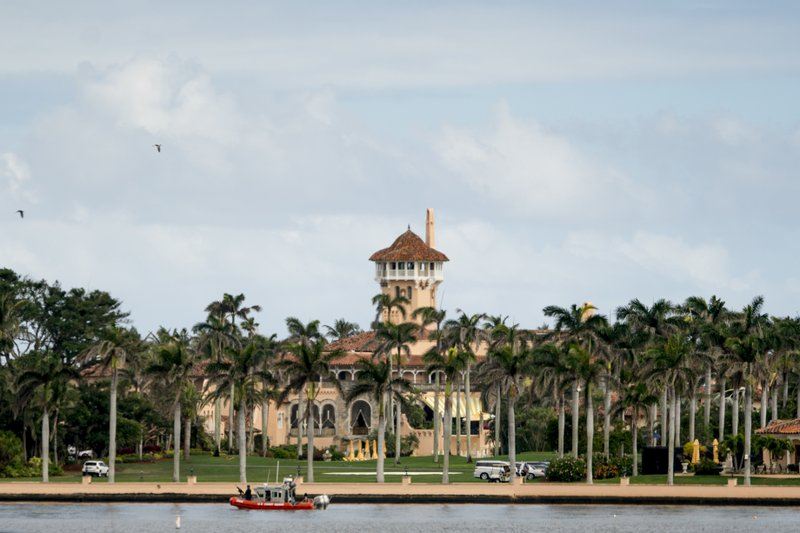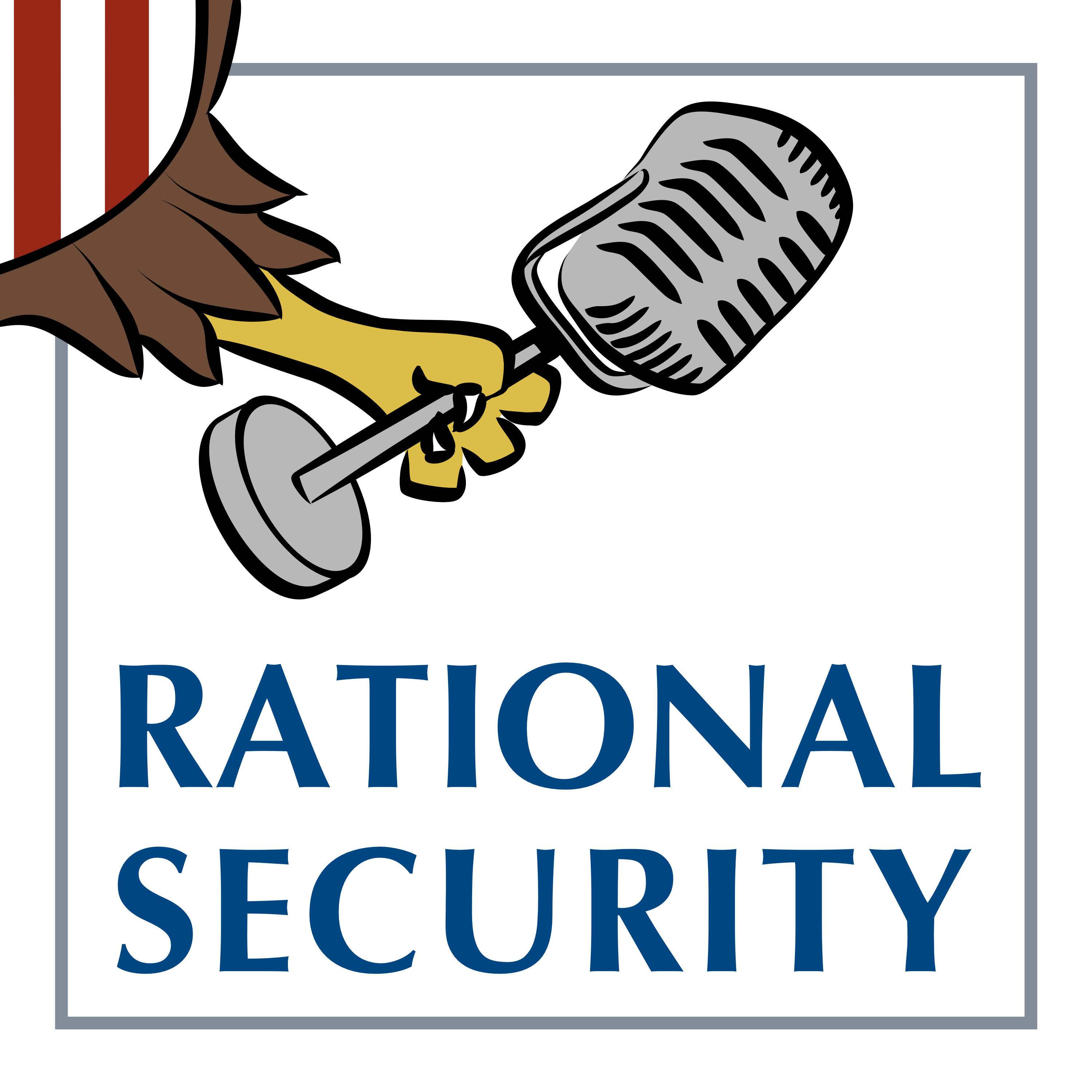The Waltine Nauta Garcia Hearing That Was

Published by The Lawfare Institute
in Cooperation With

After a false start a few weeks ago, Waltine Nauta’s Garcia hearing successfully concluded in front of Judge Aileen Cannon on Oct. 20. What follows is a dispatch in absentia of the proceedings based on a transcript obtained by Lawfare.
To recap: Nauta was supposed to have his Garcia hearing the same day co-defendant Carlos De Oliveira had his, on Oct. 12. The Garcia hearings, meant to investigate potential conflicts of interests for criminal defense attorneys, were called for by the government back in the summer. In the case of Nauta, the potential issue is that his counsel, Stanley Woodward Jr., represents a witness that the government says it may call at trial and has previously represented another individual whom the government says it will definitely call and whose testimony will inculpate Nauta. As Roger Parloff reported, Nauta’s part of the Oct. 12 Garcia hearings imploded when the government raised some new complicating information not in their original briefs, to Judge Cannon’s ire. She continued the proceedings until the parties could brief on those issues—which they did, and which Cannon says she’s reviewed for today.
Present at this round of Nauta’s Garcia hearing are Jay Bratt, David Harbach, John Pellettieri, and Michael Thakur for the government. For Nauta, Woodward and Sasha Dadan. For Nauta’s co-defendant Carlos De Oliveira, Donnie Murrell. And for former President Donald Trump, Todd Blanche.
Judge Cannon begins by reviewing for Nauta what the Garcia hearings are meant to achieve. She tells him that the Garcia hearings bear their name from a 1970s case, United States v. Garcia, in which the U.S. Court of Appeals for the Fifth Circuit decided that the court needs to have a “fulsome colloquy” with a criminal defendant if their lawyer has potential conflicts of interest that could affect their ability to represent the client in the case. In Cannon’s words, the parties are here to discuss these “potential perils of representation.”
Cannon then asks Nauta the usual biographical questions to verify his identity, as well as questions about his mental and physical state to ensure that he’s able to take part in the proceedings. She asks Woodward and Dadan to confirm that their client is competent to participate. Both of them affirm.
Directing her attention to Nauta, Cannon then announces several notices: At the end of this hearing, she explains, Nauta may elect to keep Woodward as his counsel if he waives his Sixth Amendment right to conflict-free counsel. But Cannon says she needs to first ensure that Nauta understands the potential conflicts at issue. And, she continues, even if he waives his Sixth Amendment right to conflict-free counsel, she is not required to accept that waiver. Cannon adds that she’s willing to give Nauta more time after the hearing ends to make his final decision and that he has a right to consult outside counsel about the decision as well.
“Does all of this make sense, sir?” she asks.
“Yes, ma’am,” responds Nauta.
With that, Cannon explains her understanding of the potential conflicts that may arise. She reminds Nauta that there are two individuals whose testimony at trial may “inculpate[]” him—both of whom were clients of Woodward when they were questioned by the special counsel’s office as a part of the ongoing investigation of unlawful retention of classified documents at Mar-a-Lago.
She starts with the details of Woodward’s former client, whom she refers to as “Trump Employee 4,” as listed in the indictment. This individual has signed a non-prosecution agreement, is a cooperating government witness, and is almost certainly going to be called to testify at trial, Cannon tells Nauta. Trump Employee 4, she continues, is the employee that Nauta and De Oliveira allegedly tried to persuade to delete security camera footage showing the movement of boxes of classified materials at Mar-a-Lago.
Further expounding on these details, Cannon says that Woodward represented Trump Employee 4 when he testified before a D.C. grand jury about this security footage on March 23, 2023. Then, in June, the special counsel’s office sent this employee a “target letter,” which informed him that he was the subject of a perjury investigation related to his March testimony. The government moved for an expedited conflicts hearing in Washington, D.C., to investigate potential conflicts of interest in Woodward’s representation of Nauta in Florida and this employee. According to Cannon, a hearing was held on June 30, by which time Trump Employee 4 had been appointed a separate attorney as conflicts counsel, and they informed the judge that they needed more time to consider the issue. Between that hearing and July 5, Trump Employee 4 was offered a non-prosecution agreement on the perjury issue by the special counsel’s office. On July 5, Trump Employee 4 opted for the conflicts counsel to represent him in the grand jury perjury case.
Then, Cannon explains, Trump Employee 4 testified before the grand jury in the Southern District of Florida on July 20. During that testimony, the government alleges that the individual “materially changed his testimony” from his March 2023 testimony in D.C. and, ultimately, she tells Nauta, “allegedly inculpated you in the topic of alleged footage deletion.” Seven days later, on July 27, a superseding indictment was returned charging Trump, Nauta, and De Oliveira with allegations of attempting to delete security footage, she reminds him. On what she calls a “positive note,” Cannon tells Nauta that there wasn’t any suggestion of impropriety on Woodward’s part in the June conflicts hearing in D.C., nor when the individual testified in July to the Florida grand jury.
“So that is the overall picture, summarized of course, related to Trump Employee 4,” Cannon observes.
Turning to Woodward, Cannon asks if her summary of the facts sounds right to him. Woodward, in reply, clarifies that he’s not sure exactly when the government offered a non-prosecution agreement to Trump Employee 4. Cannon, Woodward, and Harbach (for the government) take a bit to clarify that the non-prosecution agreement was offered on July 19, one day before the employee testified in front of the Florida grand jury. Trump Employee 4, through the conflicts counsel, had expressed interest in immunity as early as June 30, and a notion of immunity had been discussed during a proffer session on July 10, but the government did not make a concrete immunity offer until July 19.
With Trump Employee 4 wrapped, Cannon turns now to “Witness 1,” whom Woodward currently represents. She says there’s less information about Witness 1 but, from what she can gather, this individual worked in the White House while Trump was president and then worked in Trump’s “post presidential office.”
“Do you understand everything I’ve said thus far, Mr. Nauta?” asks Judge Cannon.
“I do, your honor.”
Cannon asks Woodward and Harbach if anything needs to be added as a factual matter regarding Witness 1. Woodward reminds her that it’s his intention to procure Witness 1 additional counsel or substitute counsel should the government call Witness 1 to testify in the Mar-a-Lago case. Harbach has nothing to add. Cannon again reminds Nauta that Woodward is actively representing Witness 1 and that the government will likely call Witness 1 to testify.
“Let me turn now to discuss with you the concepts of the duty of confidentiality and the duty of loyalty,” she says to Nauta.
She explains that the duty of confidentiality as it pertains to a lawyer representing a client, or attorney-client privilege, is what prevents an attorney from disclosing communications between them and their client. That duty of confidentiality remains active even after an attorney stops representing a client, unless that privilege is waived. An attorney also owes clients a duty of loyalty, she tells him, which “continues to run even after a representation ends.” What that means for Trump Employee 4 is that Woodward won’t be able to act in a way that would be “materially adverse to the interests of Trump Employee 4 without Trump Employee 4’s informed consent,” Cannon says. Trump Employee 4 has not given this consent as far as she knows. Moreover, she says, Woodward can’t use information relating to his former representation of this individual to disadvantage that individual unless that information becomes generally known. Similar restrictions apply to Woodward’s actions in relation to Witness 1, she says.
She asks Nauta whether this concept of loyalty makes sense to him.
It’s another yes, ma’am from Nauta.
“So putting all of this together,” Cannon says, the special counsel’s office thinks that Woodward could experience “so-called divided loyalties.” She says Woodward’s duty of zealous advocacy for Nauta could be compromised by his duty to maintain his loyalty to both Witness 1 and Trump Employee 4, in what she describes as a “double-edged sword.”
“Do you understand how that dynamic could potentially be problematic to your defense?” she asks.
“I do,” says Nauta.
So then Cannon clarifies that Woodward wouldn’t be the one to perform the cross-examination of either Trump Employee 4 or Witness 1 if either is called to testify. That’s to ensure that he won’t use either of those witnesses’ privileged information to benefit Nauta in those cross-examinations. Nauta confirms that he’s aware that Dadan would perform the crosses instead and affirms that he is comfortable with the arrangement.
But even if this is okay with Nauta, continues Cannon, he should know that there are other ways Woodward’s “divided loyalties” could manifest themselves in the case. For instance, Woodward couldn’t use information that may help discredit the two witnesses to help Nauta’s case in closing arguments. He might also decline to pursue certain lines of argumentation or “water down” his arguments to avoid violating his duty to his other or former clients.
Nauta says he understands.
Cannon has a few more things she wants to emphasize, she says. She’s not sure if Woodward has received confidential information from Witness 1 or Trump Employee 4 that hasn’t yet been disclosed to the special counsel’s office. She also doesn’t know with “100 percent certainty” whether the individuals will be called to testify. She also doesn’t know whether Woodward would try to discredit the credibility of those individuals. Even though a lot of this is in the hypothetical, she explains, it’s her job to ensure that Nauta understands what could happen and how it could impact his defense.
With Nauta’s acknowledgment, she then advises him about how keeping Woodward as his counsel could impact any appeal. She asks him to imagine that Trump Employee 4 or Witness 1 provide damaging testimony against him during the trial, and Woodward isn’t able to “effectively attack” the credibility of either because he may have still-privileged information. If Nauta is found guilty at trial, he couldn’t try to invalidate the conviction on the basis of ineffective assistance of counsel who “labored under this conflict of interest.” Nauta affirms he understands that he’s waived this argument for purposes of any appeal.
So now, to verify Nauta’s understanding, Cannon wants him to explain, in his own words, what they have been discussing.
Nauta has an off-the record discussion with his counsel. Then Cannon asks the same question again. She knows he’s not a lawyer, she says, and “doesn’t expect [him] to speak like one” but wants him to say “in general” what he thinks they’ve been discussing.
Nauta’s response: “Your Honor, I do understand the conflicts of interest with Employee Number 4 and Witness 1, how that can inhibit me, but I still choose Mr. Woodward as my lawyer.”
After that, Cannon reverts back to asking questions one by one. Does Nauta understand that Woodward represents Trump Employee 4 and continues to represent Witness Number 1? Yes. Does he understand that Woodward could have obtained confidential information that remains privileged and that he can’t use it, even to help him? Yes. Does Nauta understand that Woodward owes a duty of loyalty even if that would prevent him from using information that could be helpful to Nauta? Yes. And the cross examination limitations? Yes. That Dadan will be the one to cross-examine either potential witness? Yes. The limitations on appeal? Yes. Does Nauta know he can proceed with a different attorney? Yes. And he doesn’t have to decide this today, Cannon says. Nauta acknowledges this.
Cannon then reviews that Nauta has had an opportunity to discuss all of this with Woodward prior to today’s hearing, and Woodward advises that Nauta has been fully advised.
Assistant Special Counsel Harbach, for his part, doesn’t have anything to add, except that it’s possible the non-prosecution agreement for Trump Employee 4 came a few days before July 19.
And so for the last time, Cannon runs through the questions she asked before, and Nauta affirms that he understands all of the complications of keeping Woodward as his attorney.
“So at this time, I’m going to ask you, Mr. Nauta, and I know you already indicated your sentiment on the subject, but would you like to move forward with Mr. Woodward as your lawyer?” she asks.
“Yes, ma’am.”
“And this is true, despite everything we have talked about at this hearing.”
“Yes, your honor.”
After asking whether Nauta feels pressured or coerced to make this decision, and confirming with all parties that there’s nothing more to add, Judge Cannon rules:
“Having conducted this colloquy, it is this Court’s finding, based on the record developed, that Mr. Nauta has made a knowing, intelligent and voluntary waiver of any potential or actual conflicts of interest arising from Mr. Woodward’s current and former representation of the two witnesses discussed today.”
With that, the Garcia hearing adjourned.






